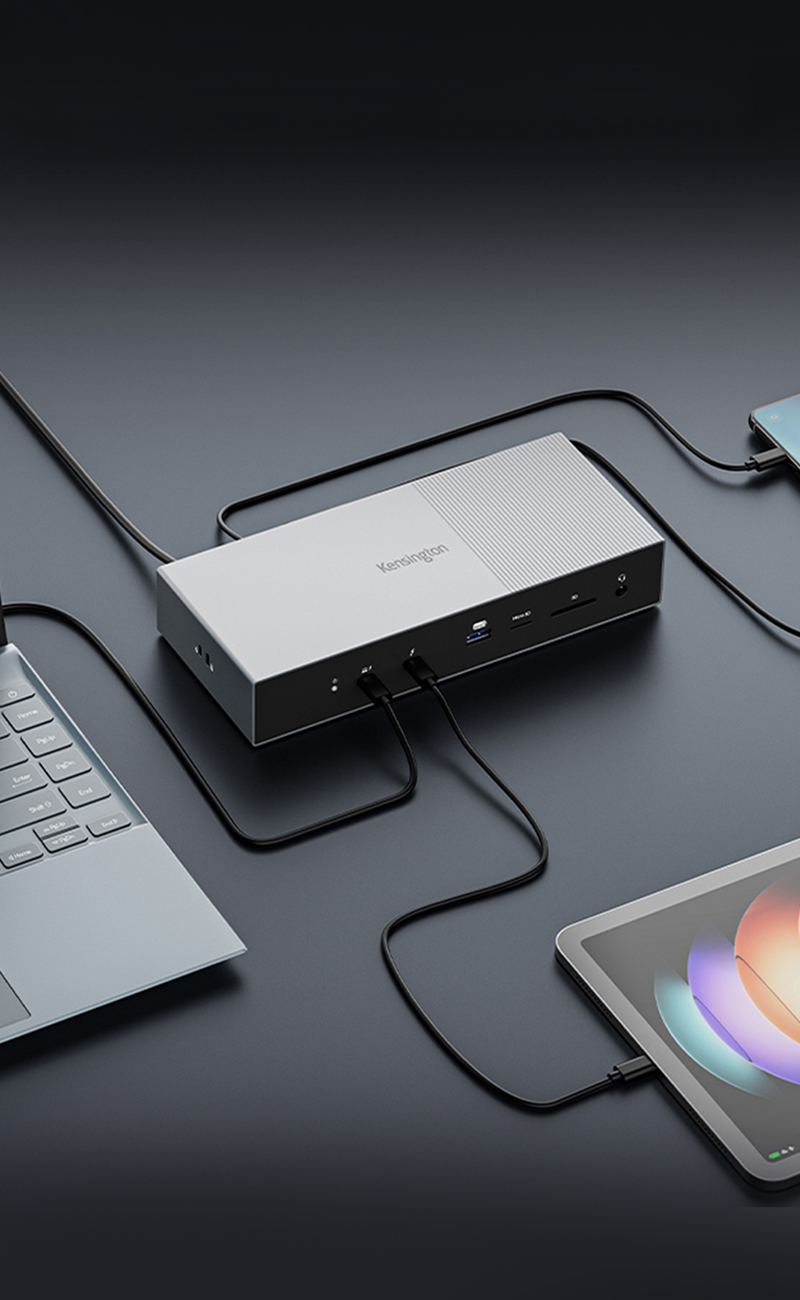Device and Platform Compatibility, User Working Environment and More Play an Important Role in Choosing and Setting Up the Most Effective USB-C Docks
Kensington®, a worldwide leader of desktop computing and mobility solutions for IT, business and home office professionals and The Professionals’ Choice for 35 years, has released a white paper that addresses the advantages, pitfalls and nuances of USB-C technology as well as what IT management should consider when deploying USB-C™docking stations to end users in their organizations.
The wave of new products featuring USB-C ports will continue to grow as USB-C becomes the new standard in connectivity. With just one cable, the ports can perform multiple functions, from charging devices to transferring data at high speeds, syncing photos and music, and outputting 4K video.
However, as outlined in USB-C Docks: The New USB-C Standard and How to Select a Matching Docking Station, not all USB-C devices are created equal. When planning to integrate USB-C docks within their organization, IT administrators should be aware of the problems they might encounter if the wrong setup is chosen. Speed, power delivery, video and inconsistent performance are factors that can impact whether the USB-C dock will work across all devices or fail to deliver key functionality.
In addition, there are several areas that should be carefully considered when procuring a USB-C dock so that the investment is best suited to current and future needs. IT professionals must have a deep understanding of the future potential of new technology because the market is capable of changing in an instant. If a product isn’t capable of lasting a long time, then money and other resources are wasted.
Compatibility, for example, is one factor that should be considered. Universal compatibility across PC brands and operating systems will help get the most out of the USB-C docking station by future-proofing. Computers receive upgrades rather than getting locked into a system due to required software. Ideally, the dock should work seamlessly with Chrome OS, Windows and Mac OS X operating systems.
Another key consideration is the working environment for individuals. The needs of someone using a USB-C dock solely at the desktop are far different from those of a road warrior who sets up at different locations. Knowing the differences in these working environments aids in choosing the best dock model. The office worker won't mind a slightly heavier and larger dock, especially if there is added functionality involved. The travel-heavy users however, will want a dock as small and light as possible, and just the bare basics to get by when out in the field.
While USB-C is a relatively new standard, it is critical to start thinking about how USB-C docking stations will deliver the best value over time. If installed to fit the organization’s needs, both short term and long term, they can significantly enhance productivity. Failure to assess the considerations outlined in the white paper, could lead to a less than adequate docking station setup that is costly and hinders productivity.
Notes to editors
About Kensington
Kensington is a leading provider of desktop and mobile device accessories, trusted by IT, educators, business and home office professionals around the world for more than 35 years. Kensington products empower people to dynamically interact with content, creating a better working experience for productive performance. In both office and mobile environments, Kensington’s extensive portfolio of award-winning products provides trusted security, desktop productivity innovations, and ergonomic well-being. Our core competencies in engineering, industrial design, product quality and responsive customer support make Kensington The Professionals’ Choice™.
Headquartered in San Mateo, California, Kensington operates as the technology division of ACCO Brands (NYSE: ACCO), one of the world’s largest designers, marketers and manufacturers of branded business, academic and consumer products, sold in more than 100 countries across the globe.
Kensington is the inventor and worldwide leader in laptop security locks, the acknowledged leader of Trackball innovation and offers a broad range of premium-branded desktop productivity solutions.
